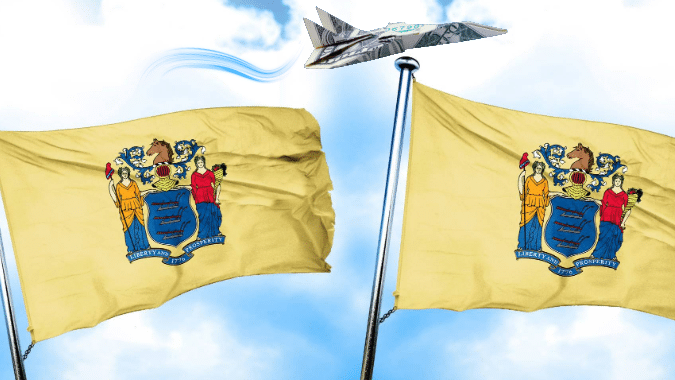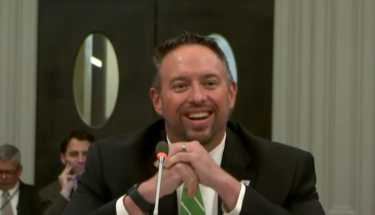On Sunday, June 30, Gov. Phil Murphy approved the $38.7 billion FY 2020 State Budget, along with $48.5 million in line-item vetoes and some notable changes to the state’s reserve funds. The final budget is largely similar to what the Legislature approved in a bipartisan fashion on June 20 and what the Governor originally proposed in March. Perhaps most notably, the final FY 2020 State Budget did not include an expansion of the top Gross Income Tax rate of 10.75% to all income over $1 million.
While Governor Murphy continued his call for a “millionaire’s tax” in the future, NJBIA was pleased to see that the final budget did not include many of the tax increases originally proposed by the Governor, especially a tax on all income over $1 million. NJBIA continued the call for comprehensively addressing the state’s most pressing structural issues – the state’s public pension and health benefit systems.
Additionally, NJBIA noted that the budget is more than 11 percent higher than the FY2018 State Budget, adding that New Jersey simply cannot sustain such large increases in expenditures every year when our pension liability and post-employment benefit obligation has grown to more than $151 billion. For a copy of NJBIA’s complete statement on the budget, please click here.
Below, please find a summary of a number of proposals that are of importance to the business community, and where they stand in relation to the final FY 2020 State Budget:
Not included in the final FY 2020 State Budget are as follows:
- A provision to extend New Jersey’s current 10.75% top gross income tax rate, which is currently applicable on all income over $5 million, to all income over $1 million;
- A Corporate Responsibility Fee, which would have imposed a $150 fee on all employers that have more than 50 employees who are receiving state Medicaid benefits;
- Increased fees or assessments on opioid drug manufacturers and distributors; and
- An additional $28.5 million proposed by Governor Murphy for the Community College Opportunity Grant.
Included in the final FY 2020 State Budget are:
- An additional $50 million in funding for NJ TRANSIT;
- A $3.8 billion public pension payment;
- A total surplus of $1.276 billion; and
- $65 million to help offset the minimum wage increase for healthcare and child care workers.
The final FY 2020 State Budget has a total surplus of $1.276 billion. This includes $875 million in undesignated surplus or the general fund balance, and $401 million being placed in the state’s Surplus Revenue Fund, better known as the rainy-day fund. Both of these accounts are designed to help protect the state against fluctuations in revenue or projected spending. However, while the surplus or general fund balance is an unrestricted account, the rainy-day fund is only to be used when revenues significantly trail projections or a budget emergency exists.
As noted above, Governor Murphy utilized the line-item veto to eliminate $48.5 million in the final FY 2020 State Budget. The Governor eliminated $38 million of a proposed $48 million that was to be used to study and implement shared services and school district consolidation, ultimately leaving $10 million for this initiative. The Governor also eliminated $5 million for the “Cooper University Hospital – Vulnerable Communities Access to Care Grant,” $4 million for “School Choice,” $1 million for the “East Orange General Hospital,” and $500,00 for a “Camden Workforce Study.”
In addition to the line-item vetoes, Governor Murphy issued Executive Order No. 73, which directs the Treasury’s Office of Management and Budget to place $235 million in discretionary spending in reserve until, “savings assumed in this budget materialize, current revenues reliably overperform, or the Legislature authorizes new revenues.” While a list of these appropriations is still unavailable, the Governor did note in his remarks that it included proposals from both the Administration and Legislature.
There are a number of documents associated with the Governor’s action, and the information provided above. For a copy of these documents, please see below:
For a copy of the Governor’s remarks, please click here.
For a copy of the Governor’s budget summary, please click here.
For a copy of the Governor’s line-item vetoes, please click here.
For a copy of the FY 2020 fund balance, please click here.
For a copy of Executive Order No. 73, please click here.
Governor Approves Increase to “New Jersey Angel Investor Tax Credit Act”
In addition to his action on the FY 2020 State Budget, Governor Murphy also approved A-5604/S-2298 (Freiman, Pinkin, Milam, DePhillips, Zwicker, Land/Corrado, Singleton), which increases the tax credit provided for qualified investments under “New Jersey Angel Investor Tax Credit Act.” The new law increases the credit from 10% to 20% of qualified investments in New Jersey emerging technology companies with fewer than 225 employees, 75% of whom must be located in the state. Additionally, for companies that are minority- or woman-owned, or located in a distressed area of the state, the credit is increased to 25%.
NJBIA has long called for an increase to the Angel Investor Tax Credit as a way to help jump-start and sustain a robust innovation ecosystem in New Jersey and inject more venture capital into the state. For a copy of NJBIA’s recent press release supporting an increase to the “New Jersey Angel Investor Tax Credit Act,” please click here.
If you have any questions regarding the final FY 2020 State Budget, please do not hesitate to reach out to me directly at AMusick@njbia.org.







